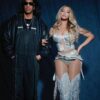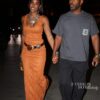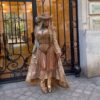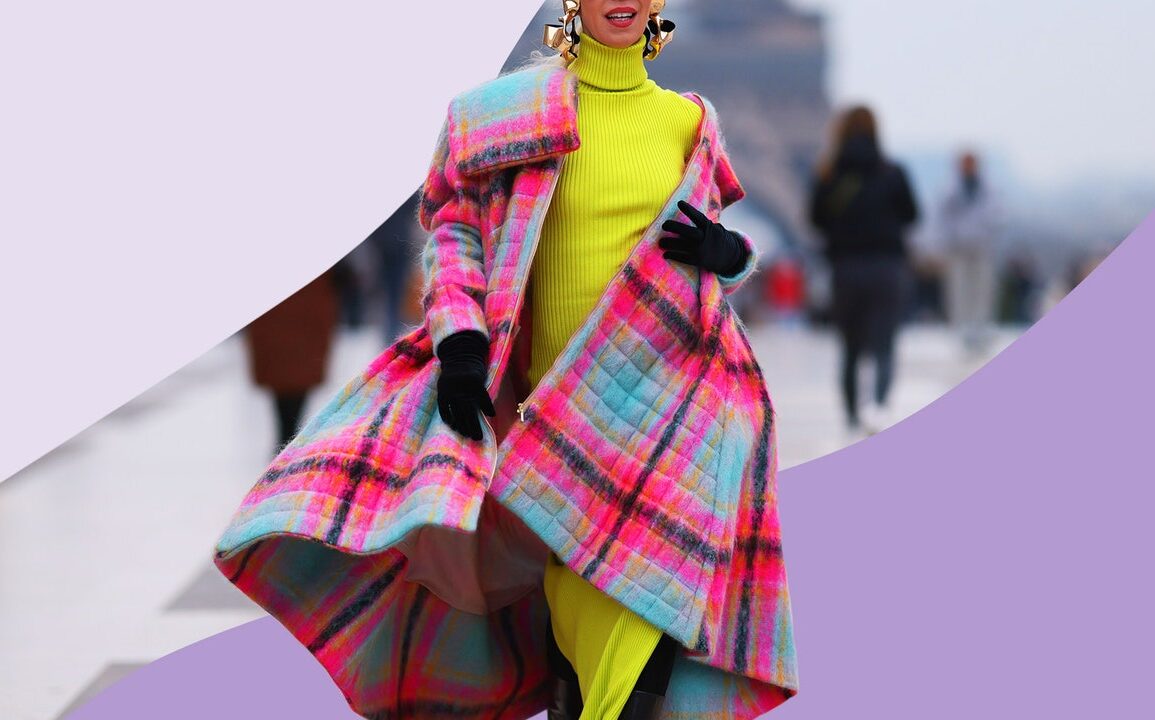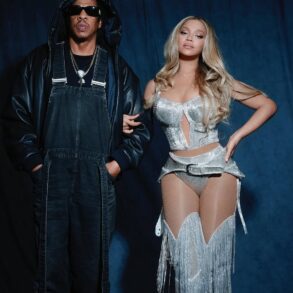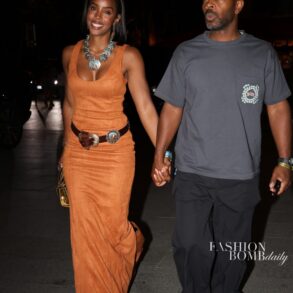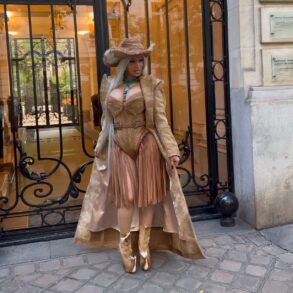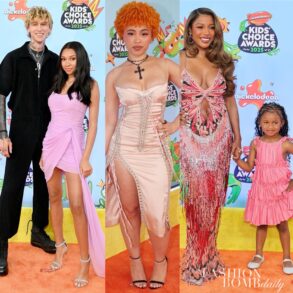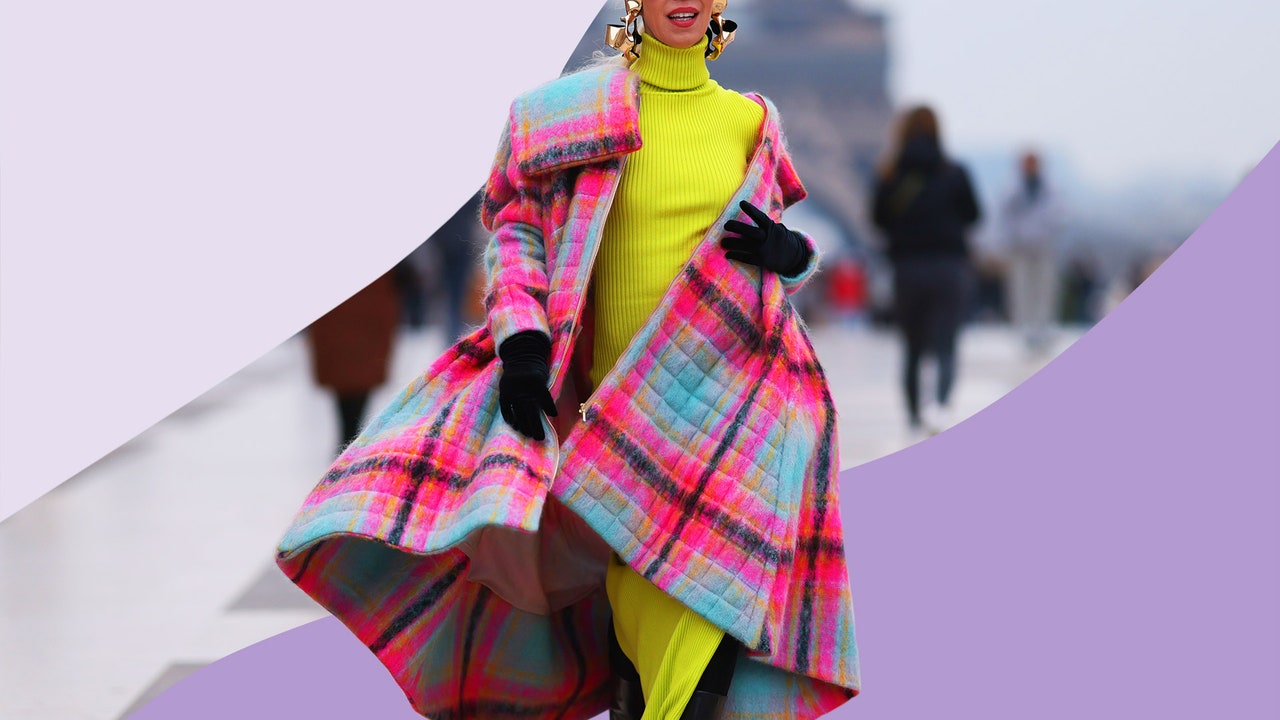
“Getting your colours done” – also known as colour analysis – was once an essential part of the fashion landscape. During the Eighties, Carole Jackson’s book ‘Color Me Beautiful’ sold 13million copies and women knew their colours like they did their star signs. Although it spawned a successful franchise of trained colour consultants and copycat businesses, colour analysis was never favoured by the high fashion pack. Could you imagine Hailey Bieber or Rosie Huntington-Whiteley getting their colours done? Bridget Jones’ mum talks about getting her colours done – and while mom jeans might be the height of cool, Pamela Jones was not a style icon. As GLAMOUR’S fashion director at large I’m more than sniffy about the resurgence…
But as fashion flips on it’s axis, again, the whole of TikTok seems to have just discovered the retro styling method (there are 319.5million views for #colouranalysis and 1.1billion views for #ColorAnalysis right now) and there’s a handy filters that lets you work out your own colours. I had to discover more about the apparently life-changing colour analysis theory so it was time to investigate what getting my colours done could do for me.
TikTok content
This content can also be viewed on the site it originates from.
What is colour analysis? What does ‘getting your colours done’ mean?
In a colour analysis session a trained colour consultant will drape a series of scarves and fabric swatches over your shoulders to see which shades you’ll look best in (and those that you won’t.) Some colour consultants use a seasonal colour chart and you will be identified as summer, winter, spring or autumn, while others use warm and cool to describe your look. You can have colour analysis done online but the results aren’t as in-depth. TikTok’s videos are blowing up and #coloranalysisfilter has nearly 50million view but Cliff Bashforth, owner and managing director of Colour Me Beautiful in the UK, doesn’t believe online analysis gives accurate results. “On the internet you can only generally identify warm or cool. You can’t talk about undertone, depth or clarity,” he warns.
TikTok content
This content can also be viewed on the site it originates from.
To find out more about the origins of colour analysis, I asked Cliff about the current resurgence in the styling method. “It’s like going back to the 80s,” he laughed. Although, the world of colour analysis has changed since it’s heyday. “We don’t tell people what colours to wear anymore, we show them how to wear colour,” he stresses. There is a difference. “I tell everyone I train, ‘Please don’t say you tell people what colours to wear.’ No, no, no, no, no! What we do now is much gentler and inclusive.” After hearing horror stories from women who’ve felt compelled to throw out their entire wardrobes after colour analysis, I’m relieved.
Why does colour analysis work?
“If you buy something you look good in, and get compliments, you will wear it more,” Cliff tells me. It seems like a no-brainer. “I still believe (colour analysis) is absolutely life-changing,” he admits. “Maybe it’s because people are more aware of environmental issues, but buying quality over quantity is made simpler once you know what really suits you.”
I’m definitely here for the sustainable aspect of the trend but to deep dive into the experience, Cliff arranged for me to meet Shirley Webb in a studio at the bottom of her (very) neat garden. As well as a rainbow-coloured rug and huge windows to let in natural light, I’m thrilled to see crystals dotted around the space. Shirley won a Colour Me Beautiful award for Best Newcomer in Europe and a Silver Award for sales in the 11 months after she started her business so she’s more than qualified to do my colours. Colour analysis is Shirley’s side hustle as she’s now retired (“I got bored being a lady who lunches,” she confessed) and her clients start at 16 years old. There are plenty of mums and grandmas who bring in their daughters and grandchildren for colour analysis, echoing the spread of TikTok’s obsession.
What happens during colour analysis?
Shirley begins by calming my fears. “Everybody can wear just about any colour, it’s knowing the right shade and tone that makes the difference.” I’m terrified she’ll tell me I need to wear Barbiecore pink. She wraps me in a white hairdresser-style cape and after peering at my eyes, my roots and considering my skin tone, the draping begins. We briefly discuss my style personality (that’s the type of clothes you wear, such as ‘creative,’ ‘dramatic,’ ‘city chic’ or ‘classic’) and our session runs well over the allotted two hour timeslot – although we did interrupt the process of draping with plenty of chat about crystals and Shirley tells me how she become a image consultant after her own life-changing colour analysis over twenty years ago.
This post was originally published on this site be sure to check out more of their content.

